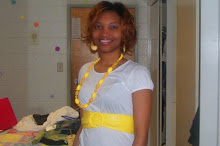Conley Chapter 4
The book states that ongoing assessment is a term that signals that assessment should be diverse and happening all the time. I find that indeed the statement is true but many teachers may not practice this effectively within the classroom. When teachers assess students they are checking that learning or knowledge has occurred for students. Everyday instruction should include differentiation in order to meet the needs of each student, which is identical to what the book describes as ongoing assessment. Ongoing assessments include classroom assessments that may include simple class discussions and observations of students. These types of assessments are easy and very informal but help to effectively measure student’s understanding and serve as a guide to help teachers plan for further instruction. Classroom assessments provide useful info about how students might perform on state tests.
With the increased focus on state and standardized tests, authentic assessments often go overlooked by teachers, which may be very harmful for students. I believe that teachers should keep in mind the content that students must learn for the test but also remember that students learn better when they can relate to the content. Teachers should use a variety of assessment tools in order to meet the needs of every student. Therefore assessment must be ongoing and authentic in order to effectively measure a student’s learning. Some examples of authentic assessments include portfolios and authentic classroom tests.
In order to successfully measure or evaluate a student’s learning the teacher must first develop the right combination of assessments to help monitor each student’s progress. Assessments should also be used by teachers in order to successfully understand a student’s personal identity. When teachers are able to pinpoint an individual’s learning needs then they are more capable of increasing a student’s content knowledge. Teachers must remember that although high stakes test and accountability are very important, they should also keep the individual learning needs of each student in mind as well by making sure learning has occurred for them.
Sunday, February 1, 2009
Subscribe to:
Post Comments (Atom)

I really appreciated the point you made about teachers overlooking authentic assessment because of state testing. This is a very true statement. I believe that authentic assessment is great for students because it allows them to compare to real life. Sometimes, by them having real life experiences to compare to, it allows them to retain the information better. Teachers are sometimes overwhelmed by the state test, and they should teach the state standards. Teachers should still remember that they should assess and teach students in ways that will best benefit the students. You may want to check out Karey's blog. http://kareyalegria.blogspot.com/ She discussed authentic assessments also.
ReplyDeleteTze, your blog is very similar to Kathy's blog. You guys both expressed the importance of diversity and continuity of assessment. I think that it should meet the needs of each individualized student. It should address their special learning styles. In order to do so, we can think of the Essential Nine ways that Beavers expressed last year. Those were very good techniques to get students actively involved in their work. Teachers have to monitor students and teach students to monitor their own progress. I am a firm believer of that.
ReplyDeletei agree totally. all my research is in area of prison health.
ReplyDeletenice blog, maybe u will read some of my books one day
and happy black history month
rawdawgbuffalo
my roll